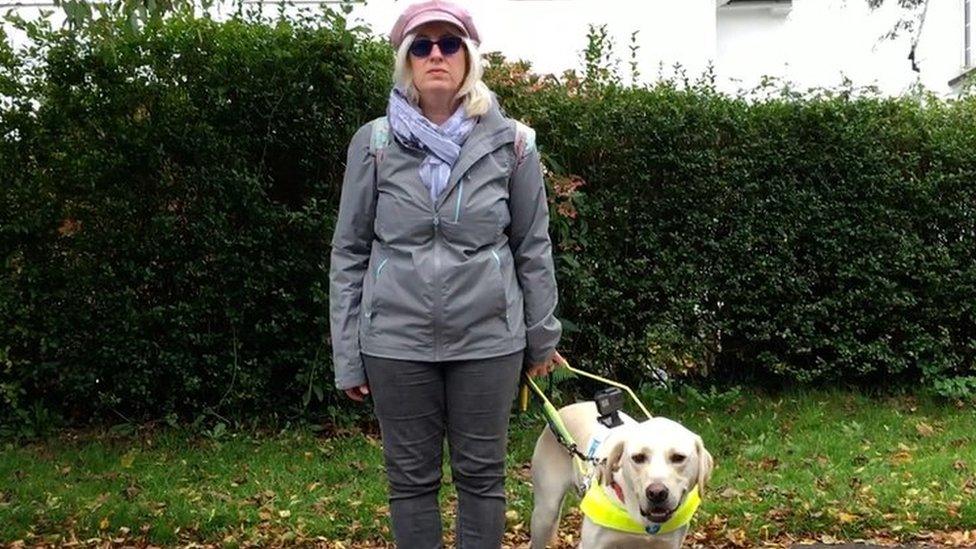Coronavirus: Tricks to train guide dogs during lockdown
- Published
Coronavirus: The volunteers training guide dogs in lockdown
Navigating busy roads, public transport and trips to the shops are all in a day's work for a guide dog.
But with the training centre in Wales closed and roads quiet, there are concerns visually impaired people may have to wait longer to get a dog.
Volunteers, known as boarders, are instead using video lessons to keep training going around the house and garden during the coronavirus lockdown.
Guide dog instructor Amy John said they were going "above and beyond".
From when they start their training at about 12 months old, guide dogs live with their boarder and are taken every day to the Guide Dogs Cymru training centre to learn essential skills.
But when social distancing measures came in, the training centre had to close, leaving it up to the volunteers to try to train the 15 dogs from their living rooms and gardens.
"They can still go out for their daily walks, or for a free run, and that's been invaluable for the moment," said Amy.
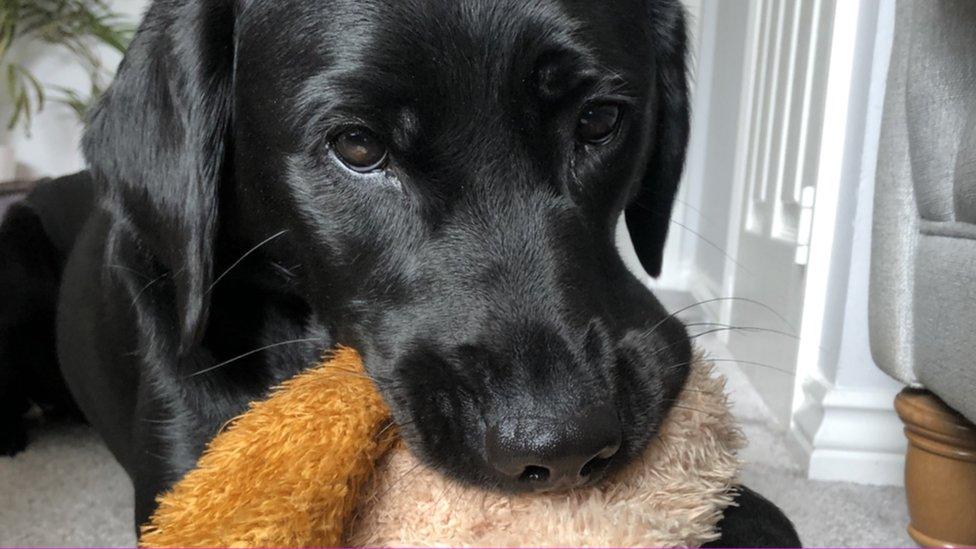
Clover relaxing with a toy after a hard training session at home
But with cafes and restaurants closed and less traffic on the roads, Amy said the puppies were not able to get used to many of the daily challenges guide dogs have to face.
"We take our dogs into shops and cafes, we use public transport regularly to get them used to being on buses, but at the moment all that is completely off," she said.
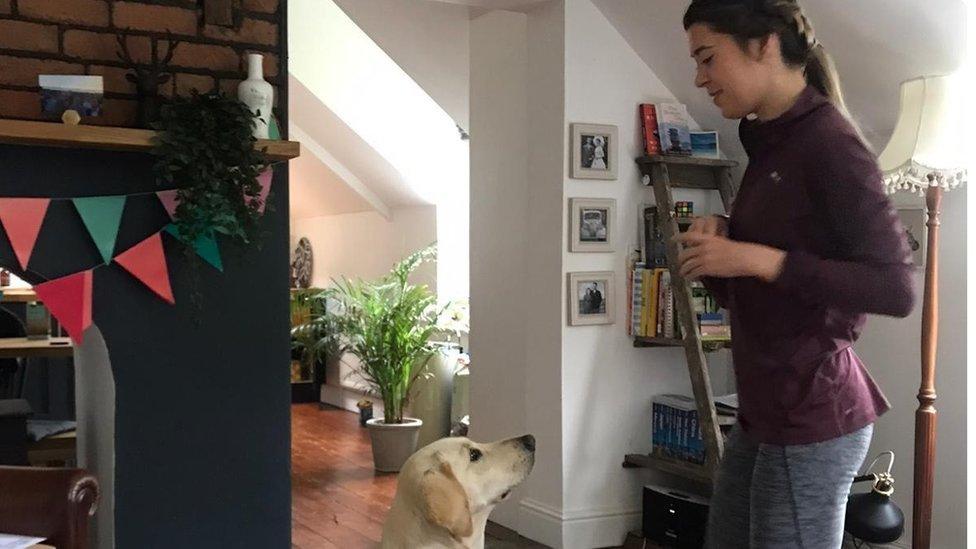
Una being taught how to hand touch in her boarder Jenna's home
Amy and her dog Bryngwyn are making videos of exercises and then sending them to the boarders, who are practising them with the dogs and sending back footage for feedback.
They may look like games, but the tricks teach essential skills, such as hand touching and putting their heads on seats, which are important to keep their owner safe and provide reassurance.
"They're so used to going out and about while they are with us, so it's important that we keep up this up, to keep their little minds going," Amy said.
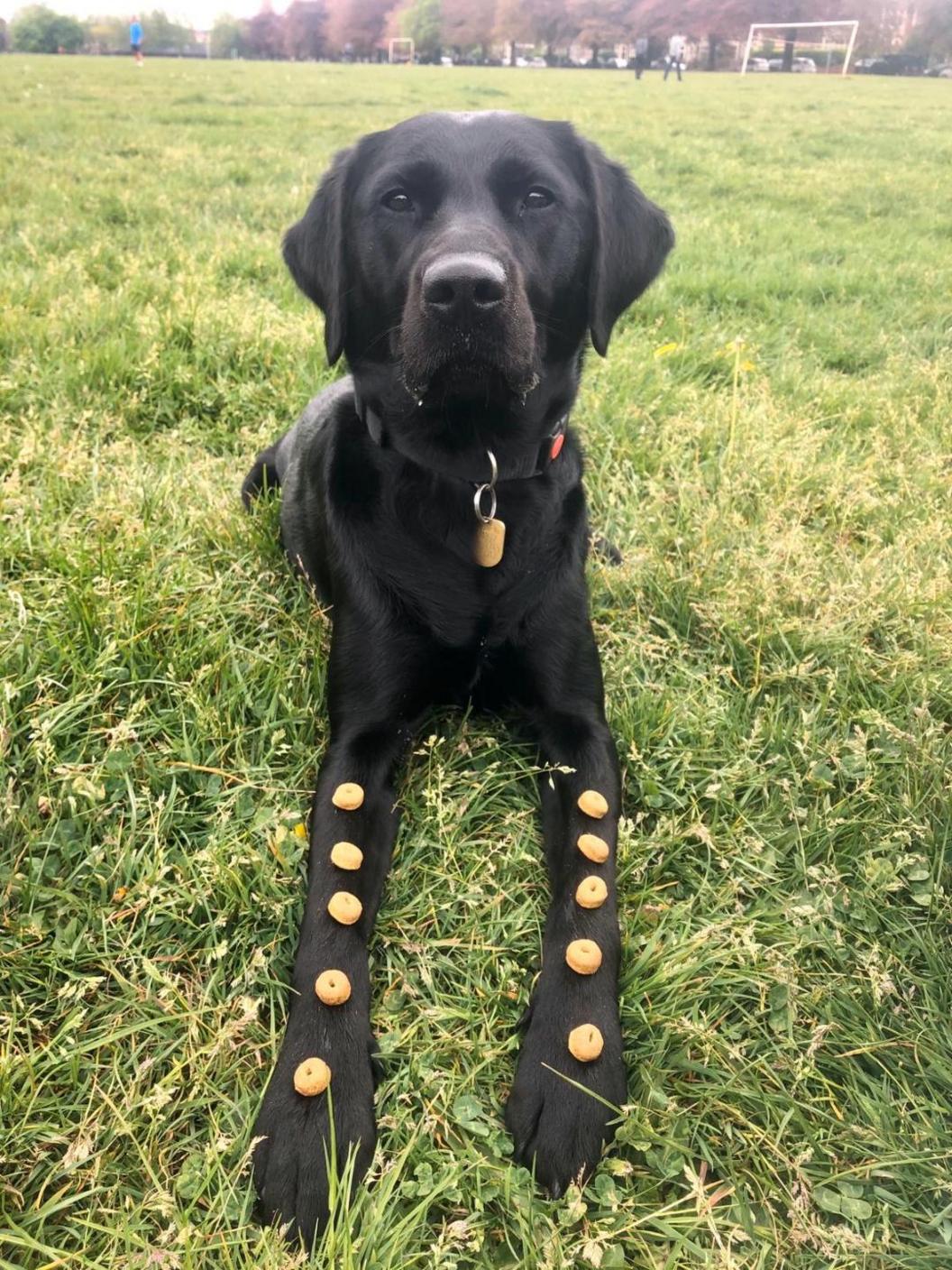
Clover is trained to wait for 60 seconds before he can eat the treats on his legs

Near the end of their training, which normally takes 16 weeks, the dogs are "matched" with a visually impaired or blind owner, with factors like the dog's speed taken into account.
But this has been paused until the lockdown ends.
"It was a real shame, we did have some dogs that were nearly at the end of their training and were ready to be matched," Amy said.

An "army" of volunteers are trying to get dogs like Clover ready to start their training during lockdown
Currently there are 59 visually impaired people on the waiting list for a guide dog in Wales.
But even with the volunteers' efforts, with dogs unable to practice essential skills like guiding across busy roads and on to trains and buses, owners may have to wait a little longer.
"It will be challenging for the dogs, it will mean that when they do come back into training with us, and we are able to start training them again, it might just take that little bit longer," Amy said.
"We will have to work quite hard on to make sure that the dogs are really confident before they are matched with a client."

'Victor was a bit afraid of the cardboard'
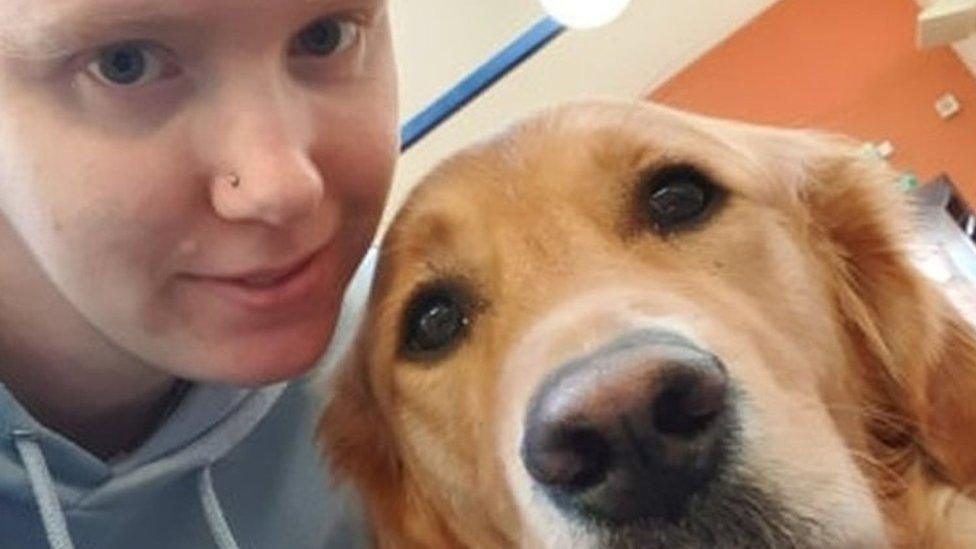
It is not just the guide dogs in the making being kept busy during lockdown - some old dogs are being taught new tricks by their owners.
Heather Worofka from Wrexham is using her time during the lockdown to teach her two-year-old guide dog Victor more skills.
Heather, 25, who is blind, has made a game using a cardboard box and a carrot, which she is using to try to teach the labradoodle, along with her retired guide dog Una, who she now keeps as a pet.
"Victor was a bit afraid of the cardboard and Una kept trying to climb into the box," she said.
"We've also been testing Victor's concentration and obedience in the garden, with my mother holding a squeaky toy and food, but fair play to Victor, he's not distracted."
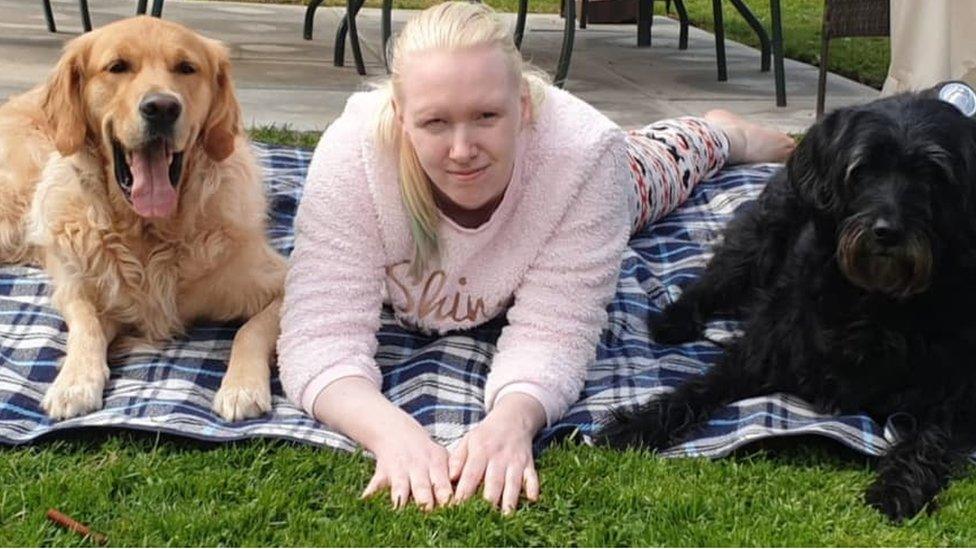

Andrea Gordon of Guide Dogs Cymru said while visually impaired people may have to wait longer for their dogs, the efforts of the boarders were making a difference.
"A significant number of people with sight loss live alone, and the current restrictions can leave them feeling cut off from their usual support networks of friends and family," she said.
"Many are not online, so Guide Dogs staff are making regular phone calls to check on the well-being of every single service user, helping them to access the practical support they need.
"We've explained that face-to-face training cannot take place at the moment as we are following government advice on social distancing.
"As an organisation, we are currently planning for such time as services can safely resume, and our plans are reviewed daily, based on the latest advice from the government."
- Published28 April 2020
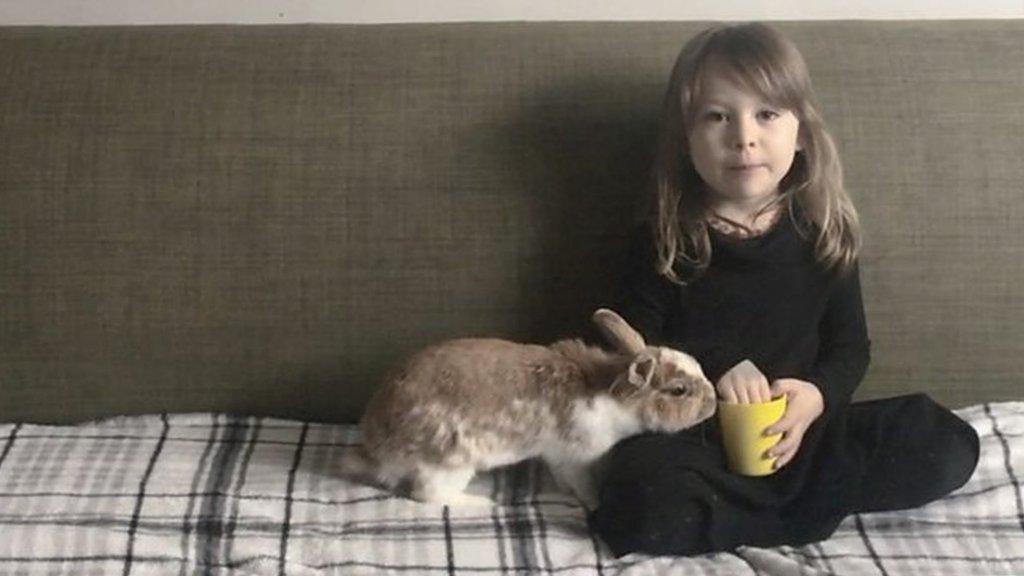
- Published27 April 2020

- Published24 November 2018
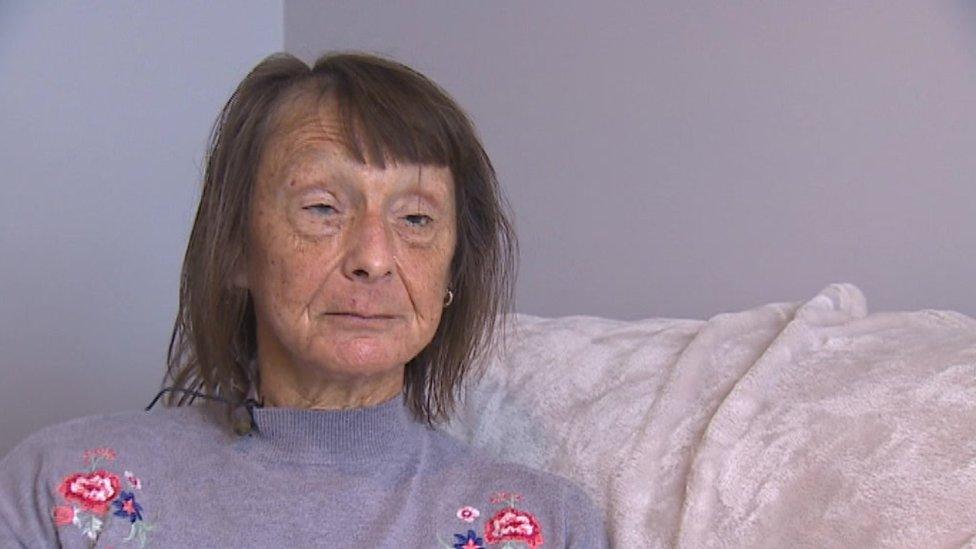
- Published18 October 2018
